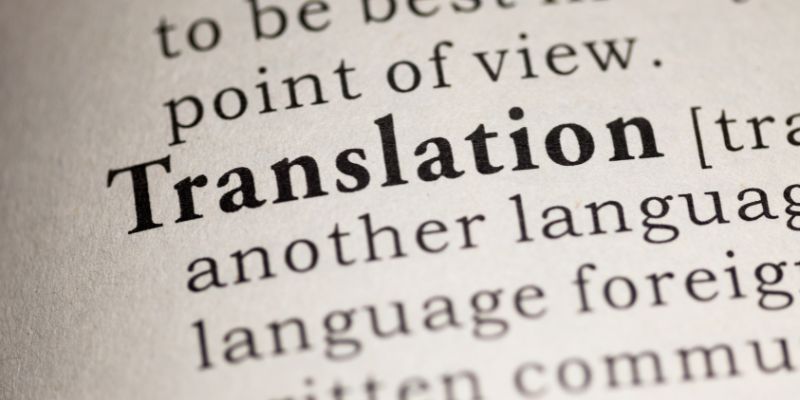The advancement of technology has had a significant impact on various aspects of human life, including language translation. Machine translation has been rapidly developing, and it's seen as a viable option for language translation. However, when it comes to Georgian language translation, machine translation still has a long way to go before it can replace human translation.
Georgian is a unique language that has distinct grammatical rules and nuances that make it difficult for machine translation systems to accurately translate text. In this blog, we will explore the reasons why machine translation can't replace human translation for Georgian language.
Georgian Language Specifics:
Grammatical Complexity
Georgian is a complex language with a unique grammar structure. It has a complex verb system, with different verb forms for different subjects and objects, making it challenging for machine translation to accurately translate text.
Nuances and Idioms
The Georgian language has several nuances, idioms, and expressions that are difficult to translate accurately using machine translation. These expressions are often rooted in the culture and history of Georgia, making them difficult to translate without a deep understanding of the language and context.
Alphabet
The Georgian language has its own unique alphabet, which includes 33 letters. It also includes many characters that have similar sounds but are visually different. This complexity of the alphabet poses a significant challenge for machine translation systems, which are not yet able to recognize and differentiate between them.
Challenges in Machine Translation for the Georgian Language
Lack of Resources
Georgian language resources are not as widely available as other more popular languages. This scarcity of resources has resulted in machine translation systems having a limited dataset, making it challenging for them to produce accurate translations.
Inaccuracies in Translation
Machine translation systems often produce translations that lack precision and accuracy, especially in the case of Georgian language. This lack of accuracy is due to the system's inability to recognize and understand the complex grammatical structure of the Georgian language, leading to mistranslations.
Limited Contextual Understanding
Machine translation systems are not capable of understanding the context of a given text, which is crucial in Georgian language translation. The Georgian language has many words that have different meanings depending on the context, and machine translation systems are not yet capable of recognizing and understanding these nuances.
Importance of Human Translation for the Georgian Language:
Cultural and Historical Context
The Georgian language is deeply rooted in the country's history and culture, and it's essential to consider this context in translations. A human translator can provide a deeper understanding of the language and culture, ensuring that the translated text is culturally and historically accurate.
Marketing and Business Translation
When it comes to marketing and business translation, the accuracy of the translation is crucial. A human translator can ensure
the correct terminology is used and the translated text is culturally appropriate for the target audience. Accurate translations can help companies establish a strong presence in the Georgian market and build credibility with their audience.
Legal and Official Documents
Legal and official documents require the utmost accuracy and precision. Errors in translation can lead to legal disputes, misunderstandings, and other consequences. Human translation is essential for legal and official documents, as it ensures that the translation is legally and officially valid and can stand up in court.
Advantages of Human Translation over Machine Translation for Georgian Language:
Quality Assurance
Human translation provides better quality assurance than machine translation. A human translator can review and edit the translated text, ensuring that it's accurate, culturally appropriate, and meets the required standards. This results in a more reliable and professional translation.
Personalized Attention
Human translators can provide personalized attention to the translation project. They can work closely with the client to understand their specific requirements and tailor the translation to meet their needs. This personalized approach ensures that the translation accurately reflects the client's message and meets their specific goals.
Flexibility and Adaptability
Human translators can adapt to changes in the translation project and provide more flexibility than machine translation systems. They can adjust the translation to meet the changing needs of the client, ensuring that the translation is accurate and relevant.
Frequently Asked Questions (FAQs):
How do I know if I need human translation for my Georgian language project?
If accuracy and quality are crucial for your project, it's best to opt for human translation. Machine translation can be useful for quick and simple translations, but it's not always reliable or accurate for more complex texts.
What kind of documents require human translation?
Legal and official documents, marketing materials, and technical documents are examples of texts that require human translation. These documents need to be precise, accurate, and culturally appropriate, making human translation a better choice.
Can I use machine translation as a starting point for human translation?
Yes, machine translation can be used as a starting point for human translation. However, it's essential to review and edit the translated text to ensure accuracy, cultural appropriateness, and quality.
How do I choose a reliable Georgian language translation service?
When choosing a Georgian language translation service, it's essential to consider the quality of their work, their experience and expertise, and their customer reviews and ratings. Choose a service that provides human translation and has a team of qualified and experienced translators.
Summary
In conclusion, while machine translation has improved significantly over the years, it still cannot replace human translation for Georgian language. Georgian language's complex grammatical structure, nuances, idioms, and the alphabet make it difficult for machine translation systems to produce accurate translations. Human translation is crucial for accuracy, cultural and historical context, and quality assurance. If you need reliable and accurate Georgian language translation, you can trust Caucasus Translations, a trusted company that provides high-quality human translation services.

